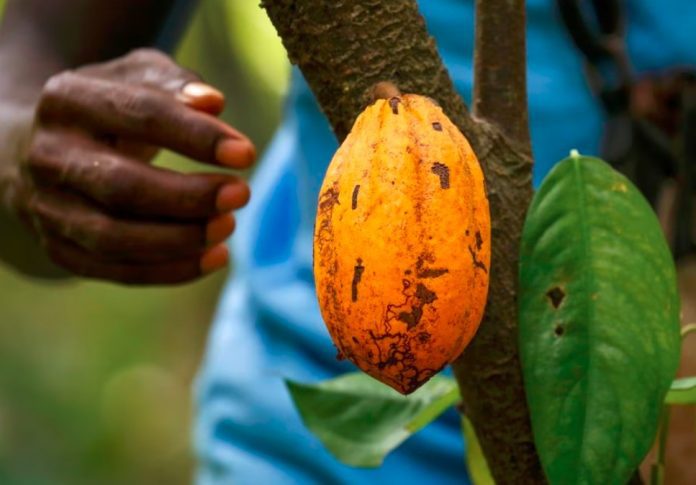News in brief: Nigeria aims to surpass Ivory Coast and Ghana in establishing cocoa supply chain sustainability through collaborative efforts involving the US government and commodity boards. Backed by a $22 million project, the initiative focuses on traceability, climate-smart practices, and capacity building.
Cocoa farmersâ association in Nigeria says that the country is set to overtake Ivory Coast and Ghana in developing a sustainable cocoa supply chain.
The move features collaborative efforts of stakeholders and the United States (US) government, together with the resuscitation of commodity boards by Nigeria.
National president of the Cocoa Farmers Association of Nigeria, Adeola Adegoke, made this known while briefing newsmen at the beginning of August. He disclosed that collaboration is under the US Traceability and Resilience in Agriculture and Cocoa Ecosystems of Nigeria (TRACE) project and implemented by Lutheran World Relief.
The project has approved a $22 million over the course of five years to boost cocoa production in the country through development programmes. They involve traceability, climate smart practices, inputs support to smallholder farmers, capacity building along the value chain and exports in collaboration with Nigerian cocoa stakeholders.
Adegoke said the project will help the country overtake the Ivory Coast and Ghana on growing cocoa sustainability. He also called on the European Union to see Nigeria as a cocoa originating country, in a bid to address the challenges of cocoa sustainability.
He hopes restoring the Nigeria Cocoa Board will boost the project and restore Nigeriaâs lost glory in the sector. Nigeria was used to be the second highest producer of cocoa in the 60âs and 70âs, producing more than 490,000 metric tons at the time, the association president said.
There are already efforts to address some of the challenges working against the sustainability of the sector such child labour menace, deforestation, traceability, application of unapproved or banned pesticide in cocoa farms, among others.
Top cocoa producing nations, Ivory Coast and Ghana, have made significant progress in ending deforestation in anticipation EU sustainability laws, which include a ban on unsustainably sourced cocoa beans from entering its markets by 2025. They have also reached new traceability milestones in reports released in 2022, BusinessDay says in a coverage of similar story.
Nigeria is presently fourth in cocoa production and currently produces 340,000 metric tons of cocoa annually (worth about $700 million), with a projected annual 500,000 metric tons by 2024. Ondo and Cross River states are the country’s top cocoa producing regions, accounting for 60% of national production.



